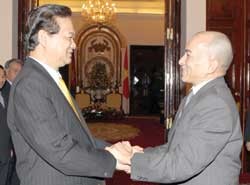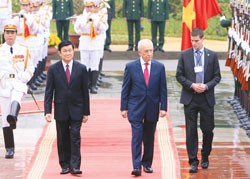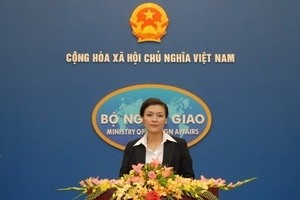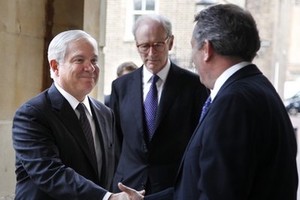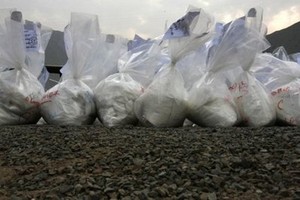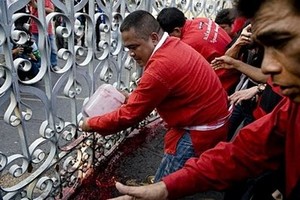
The Concluding Senior Officials’ Meeting (CSOM) came to a close on Monday with a consensus reached on six important reports, among them were reports on support of the World Trade Organization and the Doha Development Agenda (DDA) negotiations.
Senior officials from 21 WTO member economies affirmed APEC’s support for the international multilateral trade system which the WTO facilitates. Participating officials considered the support of the World Trade Organization (WTO) and the Doha Development Agenda (DDA) negotiations as one of APEC’s top priorities.
Senior officials agreed that a statement should be issued by APEC leaders during their meeting on November 18 and 19 to prompt the resumption of talks over the DDA. The statement, which will include specific measures and proposals, will reflect the strong and practical political determination of APEC members, they said.
Viet Nam's Deputy Minister of Foreign Affairs and Chairman of APEC SOM 2006 Le Cong Phung said this year’s APEC Meeting would be of key significance, as this could be one of the last opportunities for APEC leaders to contribute to a renewal of negotiations and a successful conclusion of the DDA.
The remaining reports covered a wide range of topics including economics issues such as trade and investment, human security, counter-terrorism measures, disaster and pandemic management, cultural cooperation, tourism, anti-corruption laws, and APEC reform.
Hanoi Action Plan reflects Vietnam’s active role
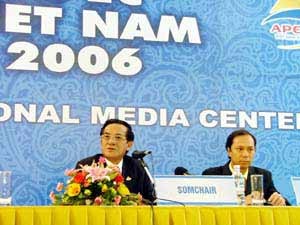
A report of critical importance to be presented for consideration by APEC ministers and leaders is the Hanoi Action Plan, which will provide concrete plans for implementing the Busan Roadmap towards achieving the Bogor Goals.
According to the wording of the 2005 APEC leaders, The Bogor Goals that were mapped out in the 2004 APEC meetings are, “To advance our (Asia-Pacific) common vision of achieving stability, security and prosperity for our peoples.” Put simply, the goal is to create an open Asian market to eliminate trade and investment barriers.
The Busan Roadmap provides the guidelines for how to achieve the objective of the Bogor Goals. As host of 2006 APEC, Viet Nam has suggested the Hanoi Action Plan as a practical framework with specific strategies and timelines for the initiatives.
The plan has been highly valued by many APEC member economies, describing it as a foundation and guiding factor for not only boosting APEC’s economic cooperation in the next 15 years and fulfilling the Bogor Goals by 2020, but also strengthening and fine-tuning APEC’s cooperation mechanism.
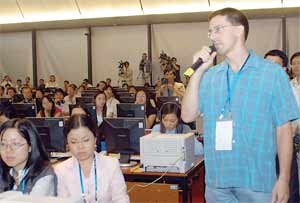
The year of APEC reform
The CSOM has praised the efforts of Viet Nam in the process of APEC reform initiatives aimed at helping APEC to act more effectively in this new era of globalization. According to Deputy Minister Le Cong Phung, who is also chairman of APEC SOM, the 2006 APEC meetings could be referred to in the future as the year of APEC Reform.
The CSOM has also approved annual reports by the APEC Economic Committee, the Budget and Management Committee, and the Eco-Tech Cooperation Committee.
In addition, a report by the Trade and Investment Committee approved by most delegates at the meeting includes a trade facilitation and action plan in which member economies agree to a 5% reduction in business transaction costs for the period of 2006 to 2010.
Another consensus was reached on nine paradigms for developing Bilateral and Regional Trading Arrangements, as well as APEC Free Trade Agreements, which will also be submitted to Ministers for endorsement.
